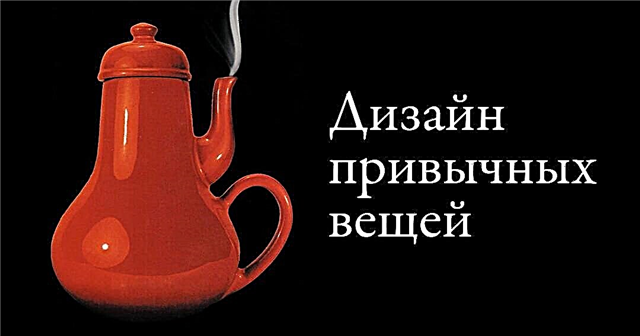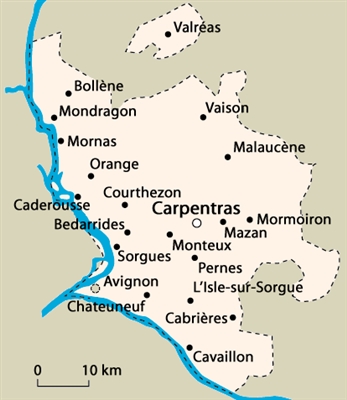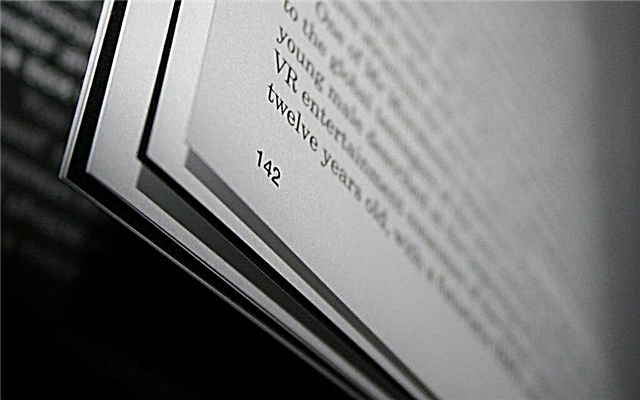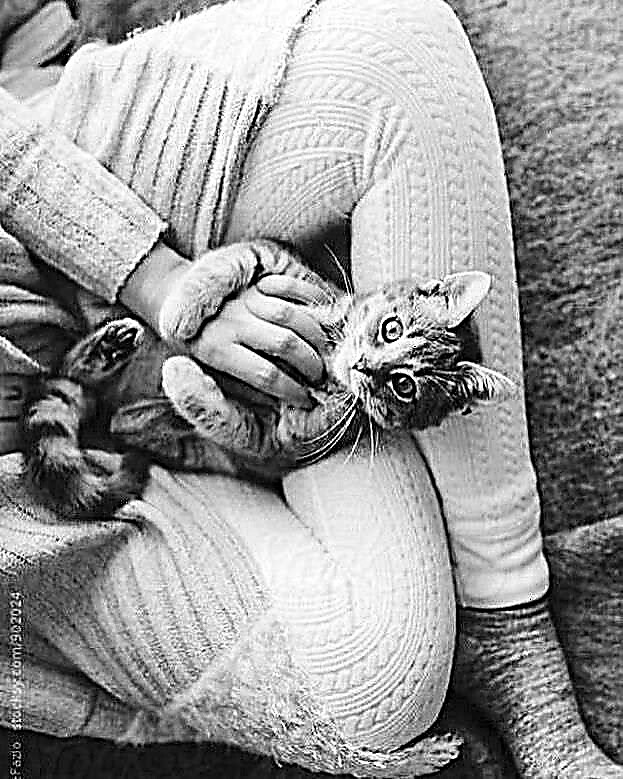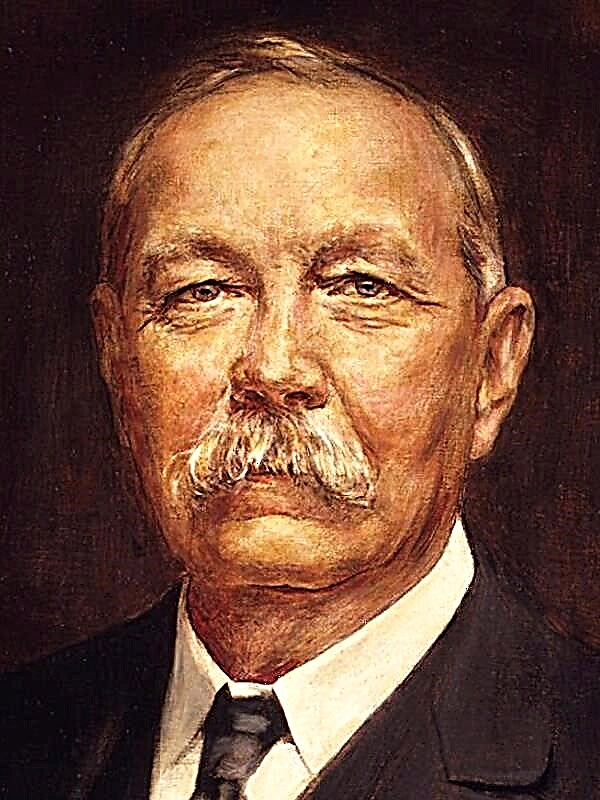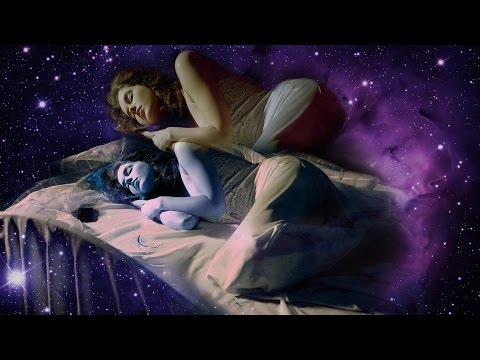“Hell” is a grandiose parody of various literary genres: from Leo Tolstoy’s novels through Marcel Proust’s cycle “In Search of Lost Time” to fiction in the spirit of Kurt Vonnegut. The novel takes place in a country that arose from the assumption that the Battle of Kulikovo (1380) ended with the victory of the Tatar-Mongols and the Russians escaped, rushed to North America - we get acquainted with the descendants of these immigrants living in Amerossia in the middle of the 19th century. And in place of Russia spread out, hiding behind the Golden Curtain, the mysterious Tataria.
All this is on the planet Antiterra, which has the twin planet Terra the Beautiful - although mostly crazy people believe in its existence. On Terra's map, Amerossia naturally breaks up into America and Russia. Events on Antiterra are a belated (fifty to one hundred years) reflection of events on Terra. This is partly why in the XIX century. phones, cars and airplanes, comics and bikinis, movies and radio, writers Joyce and Proust, etc.
But the main thing is that all this was composed by Wang Vin, who believes that the real world is just vivid events that flash in his memory. He began to write memoirs in 1957, at the age of eighty-seven, and finished in 1967. Van's memory is bizarre: he mixes life with dreams, art with life, gets confused in dates; his ideas about geography are drawn from the ancient globe and the botanical atlas.
After Wang's death, a man named Ronald Oringer took up the manuscript. He provided the text with his notes and introduced into it the comments that arose in the protagonists during the reading of the manuscript, to some extent this helps to understand how everything really happened. The book is preceded by the family tree of the Vinov family and the warning that almost "all the people named by name in this book have died."
Part one opens with a periphery of the famous beginning of “Anna Karenina”: “All happy families are happy, in general, in different ways; all the unfortunate are basically alike. ” Indeed, the family happiness described in Hell is very peculiar. In 1844, twin sisters Aqua and Marina were born in the family of General Durmanov. Beauty Marina became an actress, however, not too talented. On January 5, 1868, she played Tatyana Larina, and she was seduced by a bet between two acts by Demon Vin, a thirty-year-old fatal handsome man and a Manhattan banker. (It is worth noting that Marina’s grandfather and Demon’s grandmother are siblings.) Their passionate romance ended a year later because of the Marinov’s betrayals. And on April 23, 1869, the Demon married Aqua, who was less attractive and slightly moved by his mind (due to the failed novel). The sisters spent the winter together in the Swiss resort of Exe: there, a dead child was born at Aqua, and Marina, two weeks later, on the first of January 1870, gave birth to Van - he was recorded as the son of Demon and Aqua. A year later, Marina married Demon's cousin - Dan Wien. In 1872, her daughter Ada was born, whose real father was the Demon. In 1876 Lusset was born - perhaps already from her legal husband. (These intricate family secrets are revealed to Ada and Van in the summer of 1884 in the attic of the Ardis estate owned by Dan Wien. Having found photos of Aqua and Demon’s wedding and Marina’s strange herbarium with notes, sharp-witted teenagers compare the dates, corrected by Marina’s hand in some places, and understand that they have only parents - Marina and Demon.)
Most of the life of poor Aqua goes to hospitals. She is fixated on Terra the Beautiful, where she is going after death. At the last stage of the disease, everything loses its meaning, and in 1883, Aqua commits suicide by swallowing pills. Her last note is addressed to the "sweet, sweet son" Wang and the "poor Demon" ...
In early June 1884, an orphaned Van arrives on vacation in Ardis - to visit, so to speak, Aunt Marina (the scene in the attic, known to the reader, is yet to come). The teenager already experienced his first platonic love and gained his first sexual experience (“for one Russian green dollar” with a girl from the shop). The meeting in Ardis, Van and Ada is then remembered in different ways: Ada believes that Van invented everything - say, in such heat, she would never have put on a black jacket that cut into her brother’s memory.
Life in Ardis resembles the estate of Russian landowners: they speak Russian and French here, get up late and have a plentiful dinner. Ada, a funny and out-of-year-old creature, expresses itself in a grandiloquent, Tolstoyan manner, "effectively manipulating subordinate sentences." She is jam-packed with information about insects and plants, and Van, who thinks in abstractions, sometimes tire of her specific knowledge. "Was she pretty at twelve?" - the old man reflects and recalls “with the same torment of youthful happiness, how love for Ada took possession of him.”
On a picnic on the occasion of Ada’s twelfth birthday (July 21, 1884), she is allowed to wear a “lolita” - a long skirt in red poppies and peonies, “unknown to the world of botany,” according to the arrogant statement of the birthday girl. (The old erotomaniac Van claims that there were no panties on her!) At a picnic, Van demonstrates his crown number - walking on hands (a metaphor for his future exercises in prose). Ada, like Natasha Rostova, performs Russian dance; besides, she has no equal in the game of scrub.
Being able to cross orchids and mate insects, Ada poorly imagines the intercourse of a man and a woman and for a long time she does not notice signs of excitement in her cousin. On the night when everyone leaves to look at the burning barn, the children get to know each other on the old plush sofa in the library. In the summer of 1960, a ninety-year-old Wang, "taking up a hemp cigarette," asks: "Do you remember how desperate we were ... and how amazed I was your intemperance?" - "Idiot!" - responds eighty-eight-year-old Ada. “Sister, do you remember the summer dol, Ladora Sin and Ardis Hall? ..” - these verses set the main melody of the novel.
Love passion is closely connected with bibliophile passion, the benefit of the Ardis library is fourteen thousand eight hundred and forty-one volumes. Reading Ada under strict control (which did not prevent her from reading the “René” by Chateaubriand, who describes the love of her brother and sister, at nine years old), but Van is free to use the library. Pornography quickly disliked the young lovers, they fell in love with Rabelais and Casanova and read together a lot of books with equal enthusiasm.
One day, Van asks an eight-year-old cousin, Lucett, specially for him to learn one romantic ballad in an hour - this time he and Ada need to retire to the attic. (Seventeen years later, in June 1901, he will receive the last letter from Lucette, who is in love with him, where she will remember everything, including the poem she learned.)
On a sunny September morning, Van leaves Ardis - it is time for him to continue his studies. In parting, Ada reports that one girl in school is in love with her. In Ladoga, Van, on the advice of the Demon, meets Cordula, in whom she suspects a lesbian in love with her sister. Imagining their relationship, he experiences a “tingling of perverse pleasure.”
In 1885, Wang went to Chuze University in England. There he indulges in real male entertainment - from a card game to visiting the brothels of the Villa Venus club. He and Ada correspond with each other using a cipher composed with the help of Marvel’s poem “The Garden” and Rimbaud’s poem “Memories”.
By 1888, Van managed to gain fame in the circus field, demonstrating the same art of walking on his hands, as well as receive a prize for the philosophical and psychological essay "On Madness and Eternal Life." And here he is again in Ardis. Much has changed here. Ada realized that she would never become a biologist, and became interested in drama (especially Russian). The French governess, amused herself with prose before, composed a novel “about mysterious children doing strange things in old parks”. Former Marina's lover, director Vronsky, puts on the novel “Bad Children” a film where mother and daughter should play.
From the stories of Ada about her role, you can understand that she cheats on Van with at least three. But surely nothing is known, and the thoughts and feelings of our couple are still surprisingly in tune with each other. Closeness with Ada for Van "surpasses everything else taken together." (With a weak hand, the memoirist writes here the last clarification: “The knowledge of the nature of Ada ... has always been and will always be a form of memory.”)
A demon comes to Ardis. He is saddened by the “fatal impossibility to connect the vague present with the undeniable reality of memories”, because it is difficult to recognize in the current Marina the impetuous, romantic beauty of the times of their crazy romance. I must admit that he himself, with dyed mustache and hair, is far from the same ... The demon is trying to reveal something very important to his son, but he can not decide.
On July 21, at a picnic in honor of the sixtieth birthday of Ada Van, in a fit of jealousy, he beats a young Count de Pres. A little later he was told how the music teacher Cancer possessed Ada. Trying to make excuses, the beloved sister inadvertently confesses to everything. In a state of utter despair, Van leaves Ardis. It's over, filthy, torn to pieces!
The offended lover goes into all seriousness. In Kalugano, he begins a duel with an unfamiliar captain Tapper. Once with a wound in the Priozerny hospital, Van tries to kill Cancer lying there, who, however, safely dies himself from the disease of the same name. Soon dies somewhere in Tatarstan, near Yalta, and Count de Pre. Van starts an affair with his cousin Kordula and learns that the lesbian in their school was another girl - Wanda Broome. In early September, Van breaks up with Cordula and leaves Manhattan. The fruit is ripening in him - a book that he will write soon.
Part two is half the length of the first. Ada attacks Wang with letters. She swears allegiance and love for him, then in a womanish manner inconsistently justifies her ties with Cancer and de Pre, again talks about love ... Letters “writhe in pain”, but Van is adamant.
He writes his first novel, Letters from Terra, extracting the political details of the life of a twin planet from the delirium of the mentally ill, which he observes at the clinic at Chuza University. Everything on Terra is similar to the usual history of the 20th century: the Sovereign Commonwealth of the Aspiring Republics instead of Tatarstan; Germany, transformed under the rule of Ataulf of the Future into the country of “modernized barracks”, etc. The book was published in 1891; two copies sold in England, four - in America.
Having worked the fall semester of 1892 at the “first-class home for the insane” at Kingston University, Van relaxes in Manhattan. Lucett arrives with a letter from Ada. From a long intellectual-erotic conversation between relatives, it turns out that Ada accustomed her sister to lesbian fun. In addition, Ada had an affair with the young Johnny, - she abandoned her lover after learning that he was an old pederast. (It’s easy to figure out that this is Captain Trapper, because in seconds Van was given the younger comrade of captain Johnny Raffin, who clearly did not sympathize with him.)
Lusett wants Van to “print it out,” but he is the one who most of all wants to print a letter from Ada. The sister reports that she has gathered to marry a Russian farmer from Arizona and is waiting for the last word from Van, Van sends Ada such a radiogram that the next day she arrives in Manhattan. The meeting is wonderful, with the possible exception of the fact that Ada confesses to Wanda Brum (who was later “killed by a girlfriend of a friend”) and that Wanda gave her a black jacket that had sunk into her soul. In addition, looking at the photo album bought by Ada from a blackmailer for a thousand dollars, Van discovers new traces of her betrayal. But, in the end, the main thing is that they are together again!
After visiting the best restaurant in Manhattan, Ada provokes a brother and sister to love three together. “Two young demons” bring the virgin Lucett almost to a loss of reason, and she escapes from them. Van and Ada enjoy happiness together.
In early February 1895, Dan Wing dies. Interrupting another trip, the Demon arrives in Manhattan to settle his cousin's affairs. An incorrigible romantic, he believes that Van lives in the same attic with the same Cordula ... There is no limit to his horror and despair when he finds Ada there in a pink peignoir! The last trump card of the Demon is the secret of the birth of lovers. But, alas, Van and Ada have known about everything for ten years now, and they don’t give a damn about everything. However, in the end, Wang obeys his father - the lovers break up.
Part three is half the length of the second. Sometimes Van visits Marina, now calling her mom. She lives in a luxurious villa on the Cote d'Azur (a gift from the Demon), but at the beginning of 1890 she dies of cancer in a clinic in Nice. According to her will, her body is set on fire. Wang does not come to the funeral, so as not to see Ada with her husband.
On June 3, 1901, Wang departed for his scientific affairs on the steamer Admiral Tabakoff to England. On the same flight, Lucette in love with him secretly gets in. She tells Van that Ada’s wedding was held according to the Orthodox rite, that the deacon was drunk and that the Demon was sobbing even more inconsolable than at Marina’s funeral.
In the hope of turning a moment of bodily closeness into an eternal spiritual connection, Lucette again and again tries to seduce Wang. But, having seen his reaction to the film “The Last Affair of Don Juan” with Ada in the role of the charming Dolores, he realizes that nothing will work. Van intends to explain to the girl in the morning that he is in a difficult situation as well as hers, but he lives, works and does not go crazy. However, there is no need for notations - after swallowing the pills and drinking them with vodka, poor Lucett threw herself into the black abyss of the ocean at night. (“We teased her to death,” Ada will later say.)
On the morning of March 1905, Van Wing, who recently became the head of the Department of Philosophy, sits on the carpet in the company of naked beauties (his don Juan list will ultimately be two hundred women, like Byron). From newspapers, he learns that his father, the Demon, the son of Dedalus, died in a plane crash. (“And the exile of paradise flew over the peaks of Ecstasy ...” - the demon’s death resonates in Lermontov’s novel.) So, Marina was consumed by fire, Lucett - by water, Demon - by air. Almost all the obstacles to the reunion of the brother and sister disappeared. Soon, Ada’s husband gets pneumonia and spends the next seventeen years in the hospital.
Part four, which is half the third, is devoted mainly to the “Cloth of Time” treatise, on which Van, having retired and settled in Switzerland, works in 1922. “The past is a generous chaos of images from which you can choose whatever you want. The present is the constant building of the Past. The future does not exist ... ”So, reflecting on the nature of Time, Van on the night of the thirteenth to the fourteenth of July races in Monte Roux in a heavy rain. There they should meet with Ada, whose husband died back in April ... "Nothing remains of her angular grace," Wang describes this meeting, comparing Ada, fifty, with a twelve-year-old girl, although she had seen her as an adult woman more than once. However, the “insulting effect of age” of the Time researcher is not so worrying.
“We can never know Time,” says Ada. - Our feelings are simply not designed for his comprehension. It is like ... ”The comparison hangs in the air, and the reader is free to continue it.
Part five is half the fourth and is 1/16 of the first, which clearly demonstrates the work of Time and the memory of Van. He joyfully salutes life - on the day of his ninety-seventh birthday. Since July 1922, brother and sister have been living together, mostly in Aix, where Van was born. They are patronized by Dr. Lagose, “a lover of salty jokes and a big scholar”: it is he who supplies Van with erotic literature that kindles the memoirist’s imagination.
Although craving sometimes overwhelmed Wang, he mostly managed to avoid debauchery.At seventy-five, he had enough blitz tournaments with Ada; at eighty-seven, he finally became impotent. At the same time, a seventeen-year-old secretary appeared in their house: she would marry Ronald Orange, who would publish Wang's memoirs after death. In 1940, a film was made based on the novel “A Letter from Terra,” and world-wide fame came to Van: “Thousands of more or less unbalanced people believed ... in the identity of Terra and Antiterra hidden by the government.” This is how Antiterra, the subjective world of Van, and the more normal (from our point of view) world of Terra merge.
And now the flickering of the death of the heroes already appears: they will cling closely to each other and merge into something single - into Vaniada.
The last paragraphs of the novel are reviewed by him: Van is called an “irresistible libertine,” the Ardis chapters are compared with the Tolstoy trilogy. "Grace of pictorial details ... butterflies and night violets ... a frightened doe in a family estate park is noted." And many many others".
* * *
The second edition of Ada (1970) came out with notes signed by Vivian Darkbloom (an anagram named after Vladimir Nabokov). Their tone is ironically condescending (for example, “Alexey, etc. - Vronsky and his mistress”) - this is how Pushkin joked in his comments on “Eugene Onegin”.

